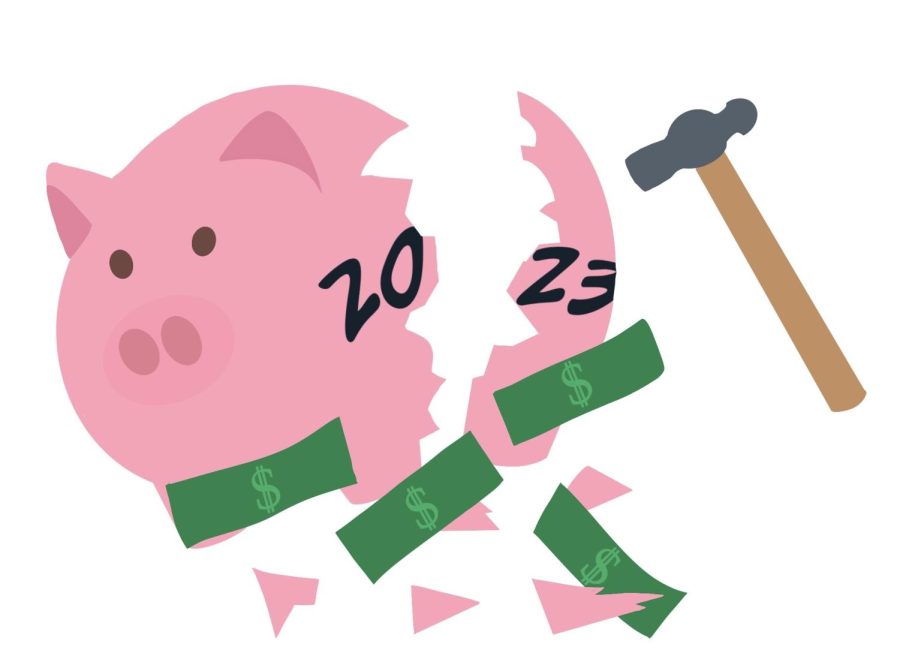New Years resolutions prove unproductive
New Year’s resolutions are meant to help you start the year off on a strong foot, but in reality they are an ineffective and costly tradition.
January 10, 2023
New Year’s resolutions are a classic tradition: every January, millions of people around the world make promises to themselves to improve their lives in some way, whether that be through losing weight, quitting nicotine or learning a new skill. In reality, however, this annual ritual is not only ineffective, but it can also create disappointment and encourage bad motivational skills and spending habits.
Studies have shown that more than 80 percent of people give up on their New Year’s resolutions every year in the first four months and of the 20 percent remaining, only half of the resolutions make it through the new year. This high failure rate can be attributed to several factors. First,people often set unrealistic and overly ambitious goals for themselves, which can be difficult to achieve and maintain. Some may also set too many large goals, which can be overwhelming and can lead to burnout. Additionally, many people focus on making drastic, fast-paced changes, rather than building good habits over time. This approach is often unsustainable and it’s easy to fall back into old habits.
Motivation is a big part of the problem. Around 76 percent of people claim to have problems with internal motivation and rely on outside factors to get themselves to do something. Ads from gyms, health bars, or salons air heavily before the New Year and prices are often raised to profit off of the rush. These external motivators can encourage people to sign up, but up to 67 percent of gym memberships go unused because the struggle for people isn’t signing up, it’s deciding to actually go to the gym.
Another issue with New Year’s resolutions is the pressure to make big changes. Many people may turn to purchasing expensive products or services that promise to help them achieve their goals. This can lead to financial strain and disappointment, especially when those products or services fail to deliver results. This can also lead to impulse buying items or services in an attempt to get closer to achieving those goals.
A better approach may be to set smaller, more achievable goals throughout the year and to focus on building good habits rather than making drastic fast-paced changes. This approach can help prevent the feeling of overwhelm and discouragement that often comes with failing to achieve a large goal. Additionally, focusing on building good habits can help create lasting change, rather than relying on motivation alone.
Habits are formed when we repeat an action consistently over time and they become automatic, meaning we don’t have to think about them. This means that even when motivation is low, the habit will still be there to keep us on track. For example, instead of setting a goal to exercise for an hour every day, you can start by setting a goal to do a 5-minute exercise every day for a week, then gradually increase the time you spend exercising. By doing this, you are forming a habit of exercising every day, and eventually, it will become automatic. Additionally, when you focus on building a good routine, you are not only working towards your goal, but you are also developing positive traits and skills that will benefit you in other areas of your life.
It’s important to remember that change takes time and effort, and it’s okay to make mistakes and stumble along the way. The key is to keep moving forward and to learn from any setbacks or failures. So, let’s make the most of this new year and commit to self-improvement, with a positive attitude and a realistic approach.







